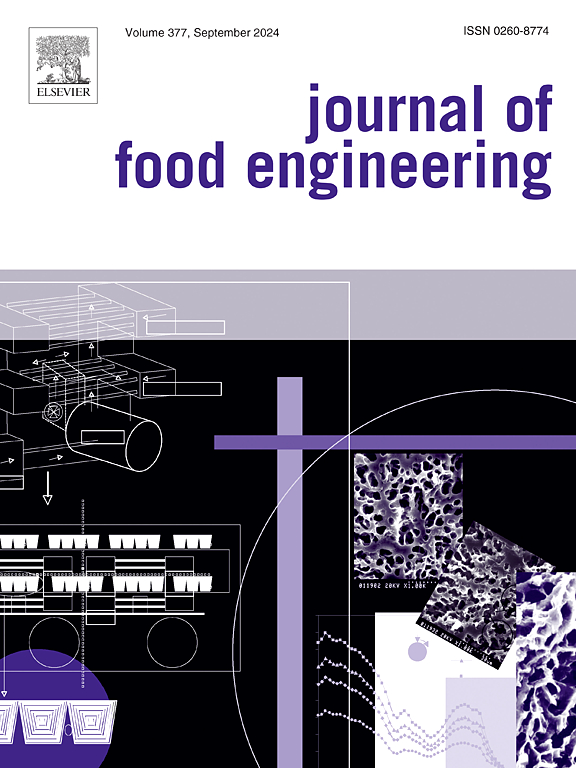Exploring microwave-assisted extraction on physicochemical and functional properties of pigeon pea protein for food applications
IF 5.3
2区 农林科学
Q1 ENGINEERING, CHEMICAL
引用次数: 0
Abstract
Pigeon pea (Cajanus cajan) offers a viable alternative to conventional plant proteins, but optimizing its functionality remains crucial. This study evaluates the effects of microwave-assisted extraction (MAE) on the physicochemical, structural, and functional properties of pigeon pea protein isolates (PPIs). Under varied MAE conditions, solubility, water, and oil holding capacities improved, with foaming and emulsifying properties comparable to commercial soy and pea proteins. High microwave power (900 W, 120 s) significantly boosted extraction and protein yields to 15.67% and 61.92%, respectively. Structural modifications in the electrophoretic profile of small bands were observed via SDS-PAGE, which revealed a predominance of vicilin proteins. Despite a high thermal stability (denaturation at 95.6 °C), the onset temperature shifts also indicate some degree of protein denaturation. These findings highlight the potential of MAE to tailor the functional properties of PPIs, making them valuable for various food and beverage applications and advancing their use as sustainable protein sources.
求助全文
约1分钟内获得全文
求助全文
来源期刊

Journal of Food Engineering
工程技术-工程:化工
CiteScore
11.80
自引率
5.50%
发文量
275
审稿时长
24 days
期刊介绍:
The journal publishes original research and review papers on any subject at the interface between food and engineering, particularly those of relevance to industry, including:
Engineering properties of foods, food physics and physical chemistry; processing, measurement, control, packaging, storage and distribution; engineering aspects of the design and production of novel foods and of food service and catering; design and operation of food processes, plant and equipment; economics of food engineering, including the economics of alternative processes.
Accounts of food engineering achievements are of particular value.
 求助内容:
求助内容: 应助结果提醒方式:
应助结果提醒方式:


